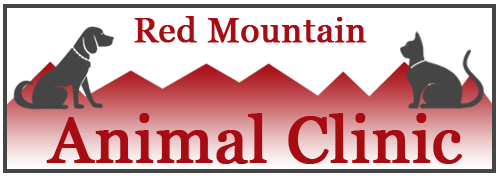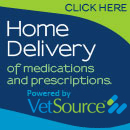- Anesthesia
- Boarding
- Cytology (Skin & Ear)
- Dentistry
- Exams (Puppy/Adult/Geriatric)
- Grooming
- Health Certificates
- Laboratory Procedures (Bloodwork & Urinalysis)
- Limited Holistic Treatments
- Microchipping
- Nutritional Counseling
- On-line Pharmacy (Vetsource)
- Parasitic Exams
- Radiology (Digital)
- Surgery
- Vaccinations
- Video Otoscopic Exams
Anesthesia
Anesthesia is used for many procedures in veterinary medicine. Although there is always anesthetic risk involved when putting a patient under anesthesia, many improvements have been made to GREATLY reduce these risks. At our clinic, we check every parameter possible to safely anesthetize our patients. A good physical exam and pre-anesthetic bloodwork are always recommended.
Boarding
We offer State of the Art boarding facilities for your 4-legged family members. For our larger patients, we have 8×16 and 4×6 raised inside runs. The smaller patients stay in stainless steel kennels. Pets are always kept in air conditioned/heated areas. They are walked and allowed to play multiple times throughout the day. Our cats have their own special room where it is quiet and comfortable for them.
Cytology (Skin & Ear)
Skin cytology can offer great incite to a patient’s condition. Many times they have bacterial and/or fungal infections that can be diagnosed with skin cytologies. Skin scrapes also fall into this category allowing veterinarians to diagnose external parasitic infections that may be occurring. Ear cytologies are useful in the same way. Bacterial and fungal infections as well as Ear Mites/other parasites can be diagnosed with ear cytologies.
Dentistry
Ultrasonic scaling is used to remove plaque and tarter from the enamel of the tooth. We are also able to check for and prevent gum disease before it becomes painful for pets. Once the teeth are clean a good polishing is performed to help their teeth look pearly white! Prophylactic tarter reducing solutions or chews are dispensed after cleaning.
Exam (Puppy/Adult/Geriatric)
Physical Exam is key to good veterinary medicine. From the beginning to end of a patient’s life a good physical exam is always recommended. This is when members of our health care team look at your pet from head to tail, covering every inch of his/her body checking for any abnormalities. They will also listen to their heart and lungs for any alterations. There are many disease processes and early changes that can be found on a physical exam to help not only puppies but geriatric patients to allow them to live a long comfortable and healthy life.
Grooming
We have a wonderful groomer here at RMAC. We can do grooms Monday-Friday, just call and schedule an appointment. 205-326-8080.
Health Certificates
Before traveling with your pet it is important to make sure you have the required document. A health certificate is most commonly recommended. Our veterinarians are certified to fill out a certificate for both national and international travels.
Laboratory Procedures (Bloodwork & Urinalysis)
Bloodwork on pets can allow the veterinarian to see how various organs are functioning. They can look at a complete blood count and determine if the patient has an infection or if they are anemic. Urinalysis is another means for a vet to determine kidney function, diabetes and/or monitor for a urinary tract infection and other conditions. Many disease processes are detected by these diagnostic procedures, along with other procedures.
Limited Holistic Treatments
Holistic medicine is becoming more accepted and is growing in veterinary medicine. Our veterinarians can help with some needs and are always striving to learn more about holistic medicine by going to conference and labs offered on the subject.
Microchipping
Microchipping is very important for patients. It allows pets to always have an identifying mechanism in case they get lost or stolen. The microchip will not come off like a collar or name tag. It is a small chip that is placed underneath the skin and has a number encrypted in it. When a missing pet is found, they can take the pet to a local vet or shelter and with a universal scanner, the patient will be scanned, the number read and then reconnected with their owner.
Nutritional Counseling
Dietary options are available for various diseases and allergies in dogs and cats. After a thorough physical exam, our veterinarians can discuss things such as weight control, food allergies, and different medical conditions that can be controlled with simple diet change.
On-line Pharmacy (Vetsource)
Red Mountain Animal Clinic offers an extension of our in-house pharmacy to help as many clients as possible. Our on-line pharmacy is controlled by professional veterinarian pharmacist and the products ordered will be sent directly to your house. They also have a Remind-me/Auto-ship program to help you remember your pets’ monthly preventions.
Parasitic Exams
There are many procedures used to examine for parasites. Dogs and cats can get Internal and External Parasites. Fecal exams are most commonly used to determine what type of intestinal parasite is found. Skin scrapes are used to diagnose external parasites. Both of these parasites (internal and external) are usually easily treated and managed once diagnosed.
Radiology – Digital
Radiology/x-rays are used in combination with laboratory procedures to help determine what’s going on inside of our patients. Many things such as arthritis, bone fractures, intestinal blockages, and tumors can be seen. Our State of the Art digital x-ray machine gives us fine/detailed images to help us diagnose.
Surgery
Spays and neuters are the most commonly performed surgery on dogs and cats. However, there are numerous other procedures that are performed, including mass/growth removals, exploratories/foreign object removal and bone pinning. The veterinarians at RMAC are trained and skilled at performing all of these and more surgical procedures. When it is appropriate referrals are made to specialists for other surgeries.
Vaccinations
Core and non-core vaccinations are very important in the prevention of many animal diseases. It is highly recommended to speak with your veterinarian about specific vaccines that are needed. Puppies and kittens need multiple series of vaccines before reaching an age for annual vaccines. It is recommended that both dogs and cats get annual vaccines.
Video Otoscopic Exam
A video otoscope gives veterinarians an in-depth real-time look into the ear canal of their patients. With this tool, they can determine the intensity of infection. Vets can also make sure the ear drum is intact and that there is not a lot of fluid stuck in the canal. This is a great advancement in veterinary medicine and RMAC is glad to have 2 video otoscopes for our use.
Click here for additional resources/specialists not listed above.





